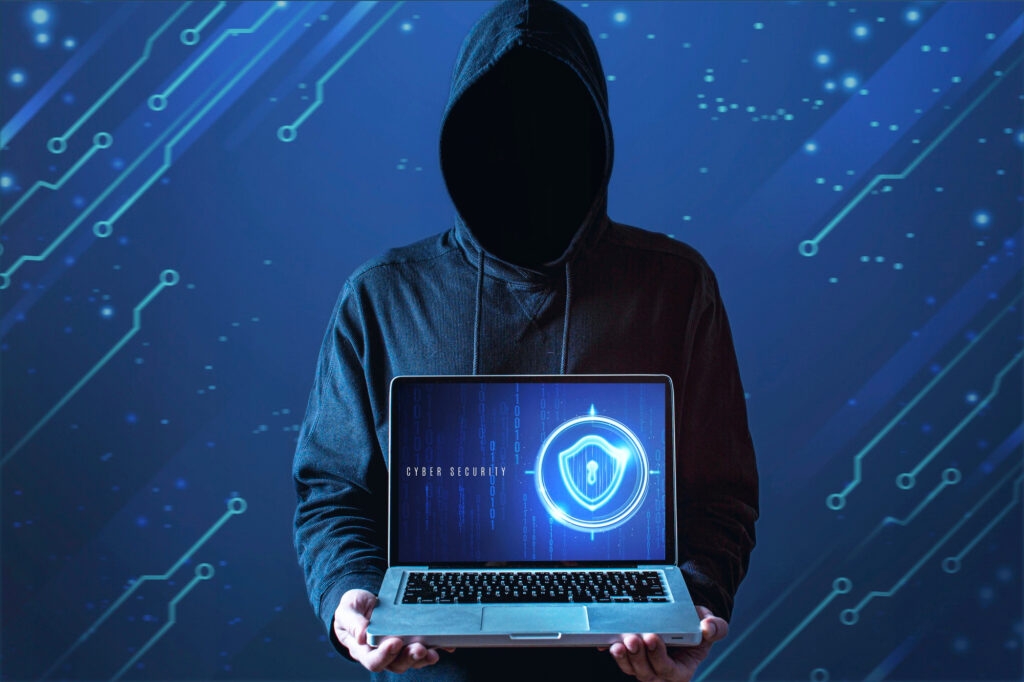In the ever-changing landscape of cybersecurity, ethical hacking has emerged as a critical and evolving field. Often referred to as “white-hat hacking,” ethical hackers play a pivotal role in helping organizations identify and address vulnerabilities in their systems and networks. This comprehensive overview delves into the evolution of ethical hacking, highlighting its growth, importance, and the ethical hackers who work diligently to secure our digital world.

Understanding Ethical Hacking
Ethical hacking involves authorized individuals, known as ethical hackers, attempting to infiltrate computer systems, networks, and applications to identify security weaknesses. Unlike malicious hackers, who seek to exploit these vulnerabilities, ethical hackers are tasked with locating and mitigating potential threats. Their ultimate goal is to strengthen an organization’s security posture.
The Birth of Ethical Hacking
The concept of ethical hacking has its roots in the early days of computing. In the 1960s and 1970s, the term “hacker” did not have the negative connotations it carries today. In fact, the original hackers were curious individuals who aimed to explore the possibilities of early computer systems and networks. They shared their findings, contributing to the development of modern computing. However, as technology evolved, so did the motivations of some hackers, leading to unauthorized and malicious activities.
The Turning Point: A Call for Ethical Hackers
The 1980s and 1990s witnessed a surge in computer-related crimes. Hacking incidents and cyberattacks became more frequent, prompting organizations and governments to seek proactive measures against cyber threats. The demand for professionals who could protect systems from these attacks led to the emergence of ethical hacking.
The first professional ethical hackers were hired by organizations to test and secure their computer systems. They utilized their expertise to uncover vulnerabilities, from software flaws to network weaknesses, and reported their findings to their employers. This marked a significant shift in the hacking landscape, with the focus now on safeguarding digital assets rather than exploiting them.
The Role of Certified Ethical Hackers (CEH)
To standardize the skills and knowledge required for ethical hacking, the International Council of Electronic Commerce Consultants (EC-Council) introduced the Certified Ethical Hacker (CEH) certification in 2003. CEH certification has become a global standard for ethical hackers, validating their competence in identifying and addressing vulnerabilities. The rigorous training and certification process ensures that ethical hackers are well-equipped to meet the challenges of modern cybersecurity.
The Expanding Scope of Ethical Hacking
The role of ethical hackers has expanded over the years. Originally focused on network security, ethical hacking now encompasses a wide range of domains, including web application security, cloud security, mobile security, and IoT security. This adaptability reflects the ever-evolving nature of technology and the need to secure all digital aspects of our lives.
Challenges in Ethical Hacking
Ethical hackers face numerous challenges as they work to protect organizations and individuals. These challenges include:
-
Staying Ahead of Malicious Hackers: The rapid evolution of technology means that ethical hackers must continuously update their skills and knowledge to stay one step ahead of malicious hackers.
-
Ethical Dilemmas: Ethical hackers must navigate ethical dilemmas related to privacy, data access, and the potential misuse of their skills. Maintaining a strong code of ethics is essential.
-
Complexity of Modern Systems: Today’s systems are complex and interconnected, making it increasingly difficult to identify vulnerabilities and potential attack vectors.
The Impact of Ethical Hacking
The impact of ethical hacking on the world of cybersecurity is substantial. Ethical hackers have successfully identified and remediated vulnerabilities before malicious hackers could exploit them. This proactive approach has prevented countless cyberattacks, safeguarding sensitive data and critical infrastructure.
Furthermore, ethical hacking has also shaped the development of more secure software and systems. The collaboration between ethical hackers and software developers has led to the discovery and patching of security flaws, resulting in safer products for users.
Famous Ethical Hackers
Several ethical hackers have gained notoriety for their contributions to the field. Some of them include:
-
Kevin Mitnick: Once a notorious hacker, Kevin Mitnick turned his life around and became an ethical hacker. He now runs a cybersecurity firm and is a respected author and speaker.
-
Charlie Miller and Chris Valasek: These researchers made headlines by hacking a Jeep remotely to expose vulnerabilities, leading to improved security in connected vehicles.
-
Katie Moussouris: A prominent figure in vulnerability disclosure, Moussouris has advocated for ethical hacking and responsible vulnerability reporting, playing a vital role in the creation of bug bounty programs.
The Future of Ethical Hacking
As technology continues to advance, ethical hacking will remain a vital component of cybersecurity. The future will bring even greater challenges, including the need to secure emerging technologies like quantum computing and 5G networks. Ethical hackers will play a pivotal role in identifying and addressing these new threats.
Additionally, the demand for skilled ethical hackers is expected to rise, as organizations and governments recognize the importance of proactive cybersecurity measures. As a result, opportunities for ethical hackers will continue to grow, making it a promising career path for individuals interested in protecting digital assets.
In conclusion, ethical hacking has evolved from the early days of computer exploration to a vital, well-defined discipline in the field of cybersecurity. Ethical hackers are at the forefront of defending our digital world against malicious threats. Their contributions not only protect organizations and individuals but also drive the development of more secure technology. The future of ethical hacking holds new challenges and opportunities, making it an exciting and crucial field in the ever-changing realm of cybersecurity.